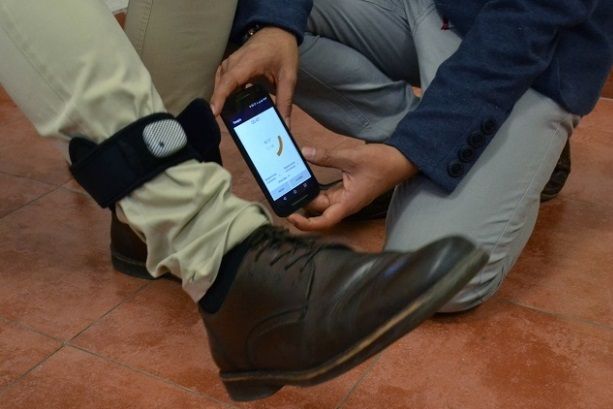Biobotix Labs, precision technology created in the BUAP for physical rehabilitation
Biobotix works as an assistant in physiotherapy and sports medicine adapting to different parts of the body using wearable type motion sensors.

Students, under the aegis of the BUAP, have created Biobotix Labs, a device that works as an auxiliary in physiotherapy and sports medicine and that currently operates under the startup business model.
Entrepreneurship is today a tool of progress and opportunity for graduates of universities throughout the country. That is why BUAP trains students not only with the knowledge of their area but also encourages and encourages their competitive spirit so that they develop ideas, innovate and become founders of their own companies.
Sergio Roque Cilia, Vidal Crispin Santiesteban, and Yoscelin Mendieta Rojas, graduates of the Sciences in Electronics and Law from this University, are an example of this.
Biobotix Labs, explains Roque Cilia, is a device that adapts to different parts of the body such as hip, wrist, ankle, shoulder, trunk, and forearm. It is a technology that uses wearable type motion sensors, as well as an application to determine the arc of movement of patients and athletes who need to be evaluated in their progress during a physical treatment or training.
"We developed an assistant for professionals in physical rehabilitation to evaluate with quantitative and qualitative data the progress that a patient has during his treatment or an athlete. The device can be used by children and adults with musculoskeletal, neurological or sports injuries."
The importance of measuring the arc of the movement of patients who have an injury through technologies, such as machine learning or the internet of things, allows physiotherapy professionals to obtain better results to make decisions about the objectives to be followed with each patient and Get your recovery.
In the case of sports medicine, the gait can be measured to prevent injuries by checking if the step has too much pronation - heel inversion - or supination-external rotation of the foot during movement.
Incubated by the BUAP Entrepreneurship area led by Dr. David Pinto Avendaño, Director of Innovation and Knowledge Transfer (DITCo), with this development the graduates of this University created a technology that relies on the cloud and sensors for biomechanical analysis, post-surgical rehabilitation, gamification, telerehabilitation, in addition to biofeedback through exercise.
An idea is born and a project is built
Vidal Crispin recalled that this project initially arose from an interest in creating prostheses, which led them to the area of physiotherapy where they found a specific problem related to the goniometric assessment for patients, a technique of measuring angles. This is how Biobotix Labs was created.
Once the objective was focused, Sergio Roque summoned the team and began to work on the development of the device and the application, while his partner Vidal focused on programming and design. Yoscelín Mendieta assumed the commercial and legal strategy to set up a company in shape, all under the guidance of the BUAP Entrepreneurship area.
Validation of clinical tests
Thanks to the support of the BUAP, Biobotix Labs is obtaining clinical and technical validations by specialists in Physiotherapy of the Faculty of Medicine; It is also tested in the University Hospital and the Integral Physical Health Center (CeSFI) of the Faculty of Physical Culture.
The CeSFI coordinator, René Moranchel Charros, commented that before Biobotix they used the goniometer, an instrument with two arms and graduation that measures angles, but the data were not precise because they could vary between one specialist and another; in the case of Biobotix, he said, there is a greater precision that efficiently quantifies the values of movement and ranges of pain (EVA scale).
With Biobotix, its creators participated in programs such as Inc Crowded Startup Street, in Guadalajara, where they were winners; in Healthathon, organized by the Tecnológico de Monterrey, in Mexico City; Life sciences and Social Entrepreneurship, of the Mexican Institute of Youth, as well as Pitches Night of the emPrendidos program, where more than 150 companies participated and Biobotix, was one of the six finalists. Currently, it is already being tested in various health institutions, where it seeks to offer an efficient technological product but at an affordable price.




